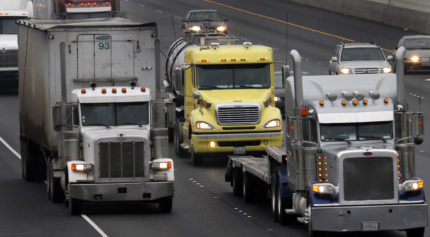
This simply shouldn’t happen in a nation as advanced as ours. That’s why federal food assistance programs like SNAP (formerly known as the food stamp program) were put into place. They’ve ensured that no matter what else happens, our children won’t go hungry. But now these essential food programs are under attack.
Last week, Republicans in the House of Representatives voted to strip SNAP and other food assistance from the Federal Agriculture Reform and Risk Management (FARRM) Act of 2013. The House then passed the altered bill on a 216-208 vote.
This is devastating news. The SNAP program provides 47 million people with the help they need to buy the food our farmers grow. For nearly 40 years, food assistance has been included in the Farm Bill, drawing bipartisan support and unifying urban and rural Americans by addressing common needs.
As Representative Marcia Fudge (D-OH) explained, “Farmers and ranchers need certainty, and so do the families and seniors who are struggling to put food on the table.”
If SNAP isn’t included as part of the Farm Bill, it will most certainly face deep cuts that will push millions of vulnerable families closer to the edge.
Stripping food programs is exactly the opposite of what our leaders should be doing right now. At a time when millions are still struggling with joblessness and poverty, we need to work harder than ever to make sure our families have a fighting chance.
More than 27 percent of African-Americans fall under the federal poverty line. That’s unacceptable. Among families with children, the numbers are even more disturbing. Today, 42.7 percent of black kids under five years old are growing up in poverty. As their parents struggle to find jobs and overcome economic hardship, they should at least be able to count on one thing: their kids won’t go hungry.
Food isn’t a luxury. It’s a fundamental resource. Our country can’t ever truly prosper or act as a leader in the global economy when our own kids are hungry. If we want to get America on its feet again, we need to first stabilize our most vulnerable communities —and that begins with food security.
Yanking food programs from the Farm Bill is an unprecedented move to further squeeze the folks who can least afford it—the hungry and the poor. In 2011, 3.9 million African-American families used SNAP benefits to help weather economic hardship. If these benefits disappear—especially before new jobs appear—we’ll soon be looking at a hunger crisis. And our kids will be the first to know it.
While President Obama would likely veto a Farm Bill without SNAP, the threat to our families is very real.
And it raises a fundamental question about what we value in this country. Making sure our neighbors and the children in our communities get enough food to eat—no matter what else happens to them—is a key part of the social contract that binds us together. It’s one of our most basic moral obligations. And it shouldn’t be up for debate.
Kimberly Freeman Brown is Chief of the Washington Office of Green For All, an organization dedicated to improving the lives of all Americans through a clean energy economy.


